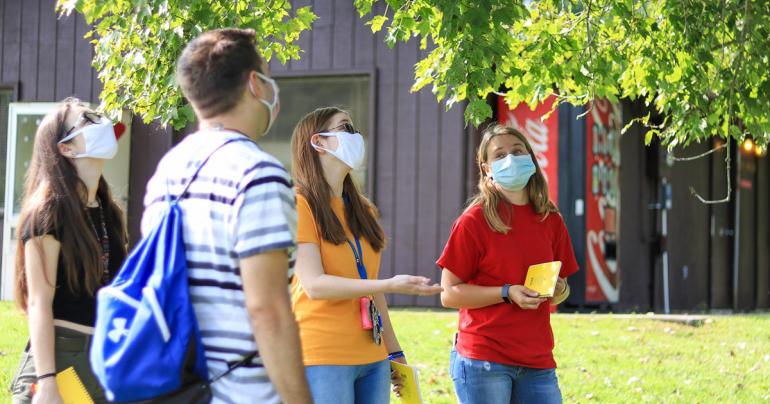
FOR IMMEDIATE RELEASE: March 5, 2021
For More Information:
Glenville State College
Public Relations Department
(304) 462-4115
GLENVILLE, WV – Several Glenville State College (GSC) biology students have been working to catalog samples of all of the plant varieties found at Cedar Creek State Park. Working under the guidance of Assistant Professor of Biology Dr. Jeremy Keene, the students have been collecting samples and preparing them for archival in GSC’s already extensive herbarium.
The ongoing project is part of a research-based class that provides students with field experience that will be valuable upon graduation.
“We collect plant samples as a snapshot in time of what was growing and/or flowering at the state park. These specimens can be used over time to compare changes in the community like species diversity or flowering times,” said Keene.
“Doing this type of project makes learning more hands-on, actually being outside makes learning much easier,” said Brittney Jenkins. The junior biology major from Weston, West Virginia added, “I’ve always loved science…I actually came to GSC with college science credits, so it’s just come naturally I guess.”
Hannah Guthrie, a junior biology major from Rock Cave, West Virginia, adds that the work gives them valuable career preparation. “This type of project gives us an idea of what we’ll be doing when we’re out, away from Glenville, in an actual “in the field” situation. We’re going step-by-step of what we would actually be doing,” she said.
Glenville State’s herbarium, which is located in the Science Hall, contains several hundred plant samples with some specimens dating back as far as the 1950s. Some pieces in the catalog were donated to GSC, but most have been collected from the local area by students.
Once the plant samples are collected, they are pressed by placing the sample between cardboard and blotting paper in a frame. They are then placed in a freezer to make sure any insect eggs are dead before the samples are eventually mounted, labeled, and brought into the collection. The entire process takes several weeks.
“This kind of project allows students to explore natural areas and gain a better understanding of the biodiversity around them. Research experiences promote long-term knowledge and conservation needs of the ecosystem,” Keene added.

